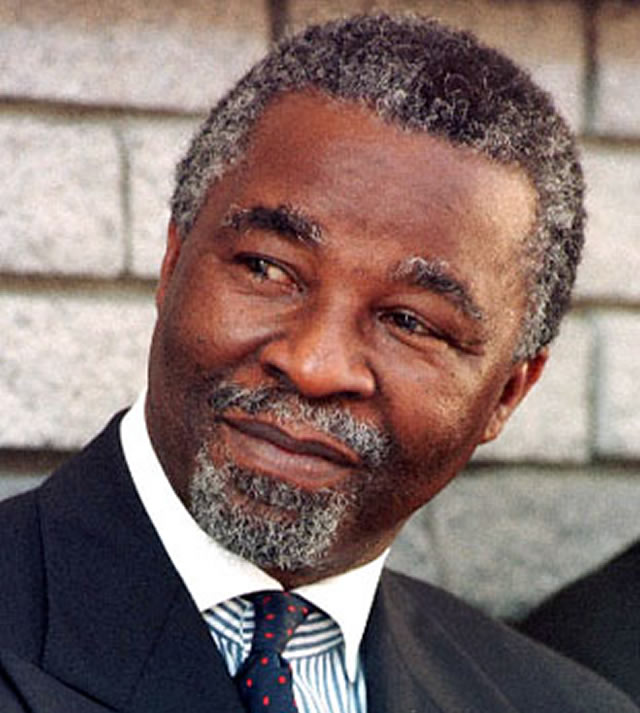EDITORIAL COMMENT: Honour Mbeki for defending region

The Journal of Southern African Studies has just published an article titled “The Origins and Functions of Demonisation Discourses in Britain–Zimbabwe Relations (2000–).”
The piece was written by Blessing-Miles Tendi, a Zimbabwe-born scholar working at Britain’s University of Oxford. Excerpts of the article have been published in some mass media outlets locally and worldwide. It is a detailed account of how Britain demonised Zimbabwe and her interests, President Mugabe and Zanu-PF since 2000 through the global media and the local private press as well as through diplomatic channels.
Tendi writes that in the first phase of the demonisation strategy motivated by the land reform programme in 2000, Britain, under Prime Minister Tony Blair, looked for assets owned by President Mugabe and other ruling party officials and purportedly held in that country.
The asset freeze narrative was meant to portray a picture of a Zimbabwean political elite that had money to stash in UK bank accounts and to spend on high-end properties in Europe while the populace suffered back home. But according to former South Africa President, Thabo Mbeki, Blair confessed to him that Britain had frozen non-existent assets.
That did not stop Blair from pressuring the European Union to impose illegal sanctions on Zimbabwe. Britain knew before the EU imposed its sanctions that President Mugabe and those close to him did not hold any assets in Europe, but the EU measures still have a clause in which the bloc commits itself to seizing and freezing the assets, if they ever found them.
Cde Mbeki’s refusal to co-operate with Blair on overthrowing the Zimbabwe government interests us a lot. We are not hearing this for the first time but the statement is another reminder of what Cde Mbeki did for us during his reign, at great personal risk and that of his country. Also, it reminds us on what we can possibly do to show our utmost gratitude to him in return.
“Tony put maximum pressure on me from 2000 to agree to a military invasion of Zimbabwe,” said Cde Mbeki, “and he was going to base his troops here (in South Africa), and we said ‘no’. It is not going to happen. If the Zimbabweans do not like Bob Mugabe they will remove him, not you. Britain had even identified people in the Zimbabwean military who they were going to put in place to succeed (President) Mugabe. In the end they gave up because of our resistance.”
Sadc was, and still is, our strongest line of defence.
However, we needed strong neighbours like Cde Mbeki in fighting off the worst form of foreign aggression that was considered on this country. He says pressure for an invasion was put on him. He frustrated it.
Instead, and as Sadc-appointed mediator, he led in a peaceful option that took all the political actors on board. Cde Mbeki knew that sustained antagonism between local politicians had potential to give foreigners a window to seek an overthrow of the government, with unthinkable ramifications across Sadc.
His mediation resulted in the Global Political Agreement of September 2008. It was a fair, realistic deal that all the three signatories to it were satisfied with.
Cde Mbeki might have suffered at a personal level as the powerful turned on him for his refusal to co-operate in their evil designs. He was demonised as well.
He did all he did on Zimbabwe on a Sadc mandate, therefore credit has to go to the regional bloc. However, it has to go to him at a personal level as well. Zimbabwe has honoured individual African icons such as Kenneth Kaunda, Julius Nyerere, Kwame Nkrumah and Samora Machel for what they did for the country and the continent.
The former South African leader continues to speak out quite strongly against western schemes on this country. This is what is needed for the world to understand the foundations of our prevailing difficult relations with the west and their resulting impact on the economy.
“I am saying to you,” Cde Mbeki is quoted as saying in the article, “Tony cannot talk earnestly about Zimbabwe, because he knows very well that the things we would say about him and his behind-the-scenes activities on Zimbabwe would be exceedingly embarrassing. He is very evil. The whole thing was evil.”
We feel we have an obligation to do more to honour him for his constructive involvement in our internal affairs at a time when the west was most vigorously pursuing an unfriendly and potentially destructive interventionist policy.










Comments